How to encourage toddlers to keep food on the table and reduce meal-time tantrums
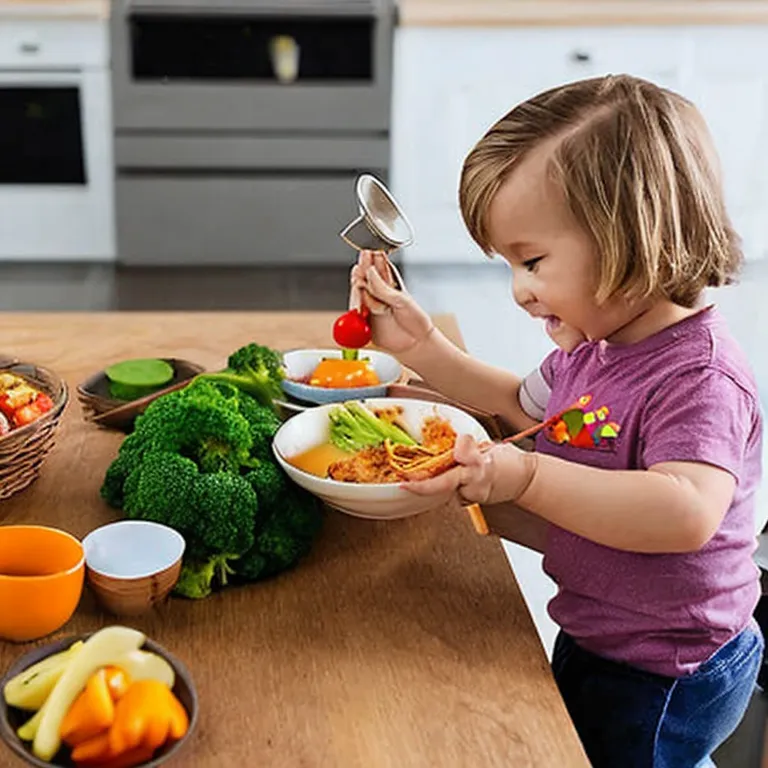
Ways to Reduce Meal-Time Tantrums
As a mother with two boys, I know that it can be a struggle to get them to keep their food on their plates. Meal-time tantrums can often be the bane of any parent’s life. But don’t worry, there are some steps that you can take to help reduce tantrums and make your mealtimes easier.
Model the Behavior
It’s important that your children see you modelling a good example. Put your own food onto your plate and then make sure that you finish it, no matter how much or how little. This will demonstrate to your children that it is important to finish the food that is on their plates.
Take it Slow
Rushing your children through mealtimes can be a surefire way for tantrums to start. Make sure that you provide a relaxed atmosphere, with no hurrying or distractions. Give your children enough time to get through their meal, and if necessary break the meal into smaller stages.
Let Them Help
Encouraging your children to help prepare meals is a great way to make them more involved in mealtimes. Not only will they gain valuable skills, they’ll also be more likely to eat their meals as they would have had a hand in making them!
Offer Encouragement
Meals can often be daunting for young children, so make sure that you provide plenty of encouragement. Offer words of praise when they are doing well, and remind them of how they are growing stronger and healthier with every mouthful.
Keep Healthy Meals on the Table
It’s important to remember that it’s our job as parents to decide what our children will eat. This can be a hard job, as we all want our children to enjoy their meals, as well as making sure that they’re healthy. Offering a variety of fresh foods and ensuring that meals are balanced is the best way to make sure that your children get the nutrients and vitamins that they need.
Be Consistent
Finally, it’s important to remember to be consistent in the way that you deal with tantrums and mealtimes. Developing a consistent routine for your children is a great way to ensure that your children learn how to behave correctly at mealtimes and will help to reduce tantrums in the long-term.
By following these steps, you will be well on your way to reducing meal-time tantrums in your household. For more tips and ideas, be sure to check out Toddler Recipes Australia, your one-stop shop for all toddler meal-time needs!
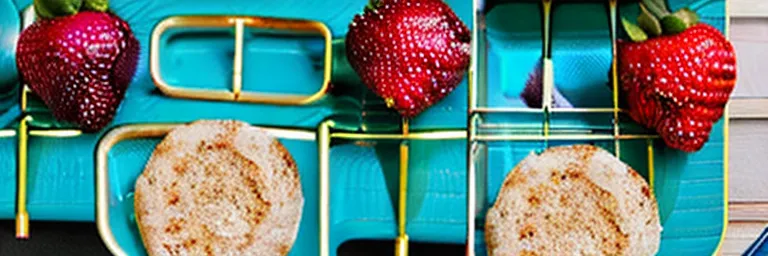
Encouraging Toddlers to Keep Food on the Table and Reduce Meal-Time Tantrums
Reducing meal-time tantrums begins before dinner is on the table. Here are some tips I’ve learned to make the experience enjoyable for everyone!
Get the Kids Involved
My oldest son loves helping in the kitchen, so I like to get him involved in preparation of the meal. Even my three-year old does little tasks such as washing the vegetables. This not only keeps them occupied, but it gives them some ownership of the meal. It also encourages them to show an interest in new foods.
When the kids are involved in the dinner preparation, they’re more likely to stay at the dinner table until the meal is finished.
Let the Kids Decide
When I’m planning the dinner menu, I like to give the kids a couple of choices. Kids feel empowered when given the chance to make their own decisions. Presenting choices for dinner lets them make decisions and goals, and gives them things to look forward to.
Once dinner is served, consider allowing them to choose what plates they want to use and how they want to arrange their dinner. Exercise their imagination and give them the opportunity to make dinner their own.
Praise Good Eating Habits
Positive reinforcement works wonders when it comes to instilling good eating habits. When my boys eat their dinner, I make a point to express my appreciation (in a positive way!) for the fact that they finished their meals and ate their vegetables.
Remember not to focus on what wasn’t finished during dinner — focus on what was finished and give a genuine, enthusiastic “Thank you for eating your dinner!”
Bearing these tips in mind will absolutely make dinner time easier for you and your family. Just remember to keep things fun for the little ones so that dinner time isn’t a battle, but instead a time for everyone to enjoy their meal together!
1. Setting Up a Supportive Mealtime Environment
Mealtime can be a source of stress and frustration for families with toddlers. Tantrums, tears, and food flying across the room are all common scene in many households. As a parent, it can feel like you are constantly battling with your toddler over food, or trying to find the perfect meal to please them.
Fortunately, there are a few tips and tricks you can use to make mealtime less stressful and more enjoyable for you, your child, and the rest of your family.
The first step is to create a supportive mealtime environment for your little one. This means taking the time to create a space that is inviting, calming, and enjoyable. This could mean setting up a cozy table with a few decorations, or having some exciting placemats to look at. You could even add some positive affirmations or artwork to the walls so that your toddler is surrounded by encouraging messages while they eat.
Next, let your toddler help in the kitchen as much as possible. This not only encourages them to be more engaged in the meal, but it also teaches them important skills, like how to crack eggs, peel carrots, or measure ingredients. Delegating tasks to your toddler can help them become more independent and involved in the meal.
Finally, serve meals that are not only nutritious, but tasty for your toddler. We know making meals for picky eaters can be challenging, but having a combination of both familiar and new foods can help. If you’re unsure what to cook, head over to Toddler Recipes Australia for plenty of ideas!
These tips will help you reduce mealtime stress and make your toddler more likely to eat without tantrums. With a little time and effort, mealtime will become a pleasant experience for everyone.
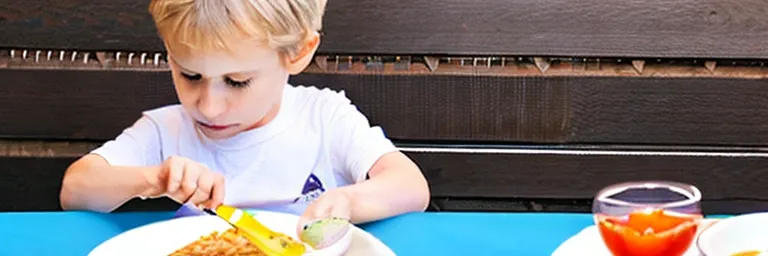
2. Encouraging Positive Eating Habits
Mealtimes can be a challenge for any parent, but it’s especially hard when dealing with toddlers who haven’t developed their own sense of discipline when it comes to their diets. However, there are some steps to help promote positive eating habits in toddlers.
- Make Dinnertime Fun
The best way to encourage a positive attitude towards meals is by making them interesting and fun. Turn dinnertime into a game! Try getting your toddlers to guess what’s in the meal, or let them help prepare the food. Allowing your child to take part in the cooking process will make them more engaged and interested in the meal, which will lead to more positive experiences at the table.
- Use Visual Cues
Young children learn best through visuals. Plating the food in fun and imaginative ways is a great way to make it more exciting and appetizing. If your child loves the characters Peppa Pig and George, try putting together a meal with shapes cut into the food. For example, you can use a cookie cutter in the shape of Peppa’s face to make toast or make dinosaur egg-shaped scrambled eggs. This will give your toddler something to look forward to and make eating more fun.
- Let Them Be Independent
Letting your toddler be in charge of themselves at the table in terms of how much to eat and what food to eat encourages their independence. Offer your child a choice between two nutritious meals, or give them the option to pick and choose from a variety of healthy food options. Doing this will give your toddler some control and make them feel more comfortable with their decisions about what to eat.
- Modelling Good Eating Habits
Children learn much of their behaviour from their parents. When it comes to eating, you can lead by example. By eating healthy foods yourself, by using proper table manners and by showing genuine enjoyment of mealtime your child will be encouraged to adopt similar behaviours.
Meals don’t have to be a battle with young children; they can be a fun and positive experience that promotes healthy eating habits. By following these tips, you can help ensure that mealtimes run smoothly and encourage healthy habits in your little ones.

3. Talking to Toddlers About Unhealthy Foods
When it comes to talking to toddlers about unhealthy foods, it’s important to remember they’re still learning the basics of nutrition. As their parents, it’s our responsibility to guide them towards making healthy eating decisions. I’ve found the following tips to be really useful with my two boys, aged 3 and 7.
-
Lead by example: Always be a role model when it comes to what you put on your plate. Children are always watching us and will follow our lead, so make sure you’re eating healthily too.
-
Introduce healthier alternatives: It’s not always easy for kids to go ‘cold turkey’ on unhealthy foods straight away, so try to introduce healthier versions of their favourite dishes. If the food looks similar, chances are they’ll be more willing to give it a go.
-
Get them involved in meal planning: This can help to reduce meal-time tantrums as it gives toddlers a sense of control. Involving them in food choice and meal preparation will also get them interested in healthier foods.
-
Know when to say no: While it’s important to encourage healthy eating, it’s also great to allow them to have an occasional treat. Just make sure it’s in moderation and that you’re setting the right example with other snacks throughout the day.
Ultimately, getting your toddler to eat healthy foods can be a challenge but with the right attitude from both parent and toddler it can go a long way. Remember to talk to your toddler in a positive way when introducing healthy foods. With lots of patience and a bit of creativity, you’ll get there in no time!

4. Understanding Toddlers’ Mealtime Behavior
As a parent, it can be difficult to know why toddlers are so particular about food. Are they simply being stubborn, or is there a legitimate reason behind their mealtime behaviors?
To get to the root of their issues, it is important to understand the unique developmental stages toddlers go through. Toddlers are still learning how to interact with others and how to manage and express their own emotions. This can cause them to act out and be picky about food. If they are overwhelmed or anxious, they may refuse to eat or fight to remain in control and refuse certain items on the plate.
It helps to have patience and understanding when dealing with toddlers’ mealtime behavior. Mealtimes can be challenging as toddlers test boundaries and try to find their place in the world. As a parent it is important to remain calm and consistent. Here are a few tips to help reduce meal time tantrums and encourage your toddler to sit at the table:
- Allow your toddler to help in the kitchen. This will help make them feel important and included.
- Provide healthy and nutritious options for meals. Introducing new foods or ingredients as snacks or sides are a great way to get them introduced to healthier options.
- Respect your little one’s needs and choices. It can be difficult to just let them get away with not eating, but if you can try to let them self-regulate and pick and choose what they want to eat.
- Be flexible and understanding. Show them it is okay to make mistakes and let them know you are there to help.
- Finally, create a positive and relaxed atmosphere. Meal times should be a fun and positive experience so make sure to talk and laugh with your toddler during meals.
By understanding toddlers’ mealtime behavior and making adjustments where necessary, it is possible to reduce meal time anxiety and tantrums. With patience and understanding, mealtimes can be an enjoyable time for everyone.
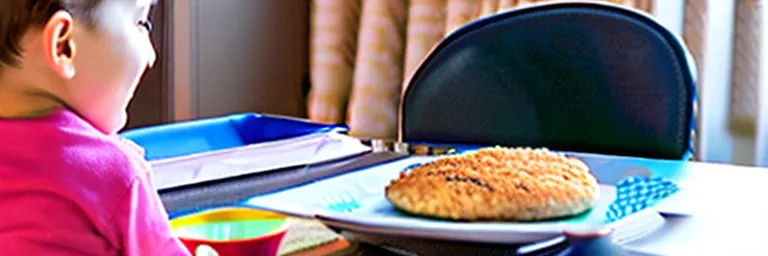
5. Making Mealtime Fun
When creating meals for your toddler, making the mealtime experience enjoyable is an important part of encouraging them to stay at the table and respectfully eat their food.
Here are some tips to make mealtime more fun:
-
Let them be involved in the process: Having your child help prepare a meal can make mealtime more enjoyable and make them more likely to eat it. Pick recipes they are interested in and let them help with simple tasks like stirring or measuring ingredients. Take breaks throughout the process and let them enjoy their hard work.
-
Serve in fun containers: Serve meals in fun containers or dishes. This helps make their food look more inviting and makes the experience more enjoyable for your little one.
-
Get creative with presentation: Present your food in interesting and fun ways. You can use cookie cutters for sandwiches, or create plates full of shapes and colours. Making the food look appealing will make them more willing to eat it.
-
Be playful with language: Rename dishes or give them quirky descriptions like “fluffy clouds” for mashed potatoes or “bubble soup” for vegetable soup. This helps the food sound more interesting and makes the child more likely to try it.
-
Play “make-believe”: Pretend to be animals while eating, or change the atmosphere of the room by pretending to be astronauts eating in space. Have fun and make a game out of it. This will give them something to look forward to at mealtime and make mealtime fun.
When it comes to encouraging toddlers to stay at the table, having fun and keeping it interesting is the best way to go. Parents should get creative with mealtime and make it an enjoyable experience for everyone. With these tips, you’ll be able to make mealtimes more enjoyable for your toddler and reduce mealtime tantrums in no time.
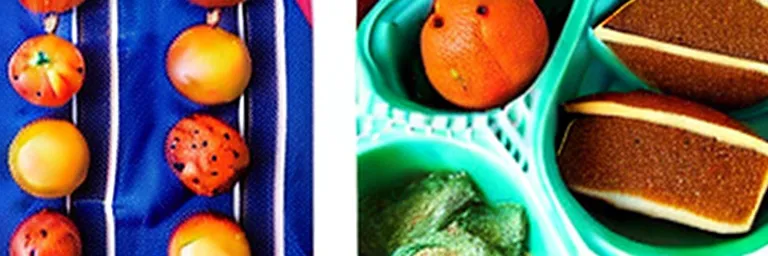
6. Giving Toddlers Opportunities for Participation in the Kitchen
As a busy parent, you know all too well how important it is to involve your toddlers in the kitchen. Not only can it help to reduce meal-time tantrums, it can also help to build their confidence, boost their self-esteem and foster an appreciation for home-cooked meals from a young age.
The trick to successful kitchen participation for toddlers is not to overwhelm them with too much information or complexity - instead, focus on tasks that are achievable and fun. Here are some ideas to get started:
-
Let them help you select recipes: Take a trip to your local library and let them pick out some new recipes. Ask their opinion on the ingredients and listen to their suggestions for the meal.
-
Set realistic expectations: Allow them to help you in the kitchen, but don’t expect perfection. Instead, focus on the process, not the end result.
-
Get creative: Let your little chefs choose an apron and give them permission to make a mess!
-
Involve them in meal prep: Depending on their age, they may enjoy washing vegetables and chopping fruit or stirring sauces. Show them how to use the knife and knife block safely - this is an important lesson that they will carry with them into their teenage years.
-
Make meal-time fun: Get creative in the kitchen and encourage them to have fun. Bake biscuits together, let them put toppings on pizza, decorate salads and make carrot flowers - the possibilities are endless!
By giving toddlers the opportunity to take part in meal-time preparation and making it enjoyable, you are setting them up for success. Meal-time tantrums may still occur, but with realistic expectations and plenty of fun, you are demonstrating that the kitchen can be a rewarding and positive experience.

7. Utilizing High-Energy Mealtime Activities
Do you want to end mealtime tantrums and encourage your toddler to stay at the table? Using high-energy activities at mealtimes can help to keep your toddler engaged and interested in what they’re eating. Here are some ideas to get you started:
-
Dancing and Singing: Songs and dances are a great way to get your toddler up and active. Get your toddler involved in singing and dancing to some of their favorite tunes, and encourage them to match their movements to the beat of the music.
-
Animal sounds: Get your toddlers to make and imitate animal sounds while they eat and help them learn to feed themselves by pretending to be animals.
-
Action Figure Play: Playing with action figures during mealtimes can help to keep your toddler occupied and keep them interested in their food. Help them create imaginative stories and scenes to act out with their toys.
-
Puzzles: If puzzles are your toddler’s thing, why not try creating your own food-based puzzles. This can help to keep your toddler interested and challenged during meal times and help them to learn about the different types of food.
By engaging in these activities, you can help to keep your toddler at the table longer and reduce meal-time tantrums. It’s also important to give your toddler space and allow them to explore their food and experiment with it. I find this helps to increase my boys excitement and commitment to finishing their meal.
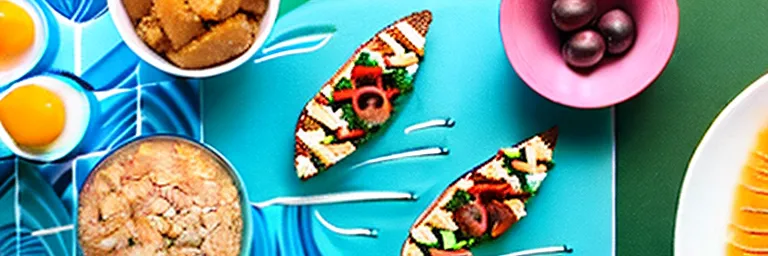
8. Reducing mealtime stress
As parents we want to avoid mealtime stress and make sure our toddlers enjoy their meals, but it can be tricky to get them to keep food on the table. Here are some tips to help avoid mealtime tantrums and encourage your toddlers to eat their meal:
-
Stay calm: It can be stressful when your toddler refuses to eat but it’s essential to stay calm and stay positive. This will help your toddler to relax and keep focused.
-
Be encouraging: Offer gentle encouragement to keep them motivated. Let them know that you’re proud of them when they try something new or eat a food they don’t usually like.
-
Go slow: Rather than rushing your toddler through their meal, take the time to enjoy it. Move the meal at a manageable pace and take your time when introducing new foods.
-
Explain why: If your toddler doesn’t want to eat something, explain why it’s good for them. Tell them about the vitamins and minerals it contains and how it benefits their body and mind.
-
Involve them: Let them help out in the kitchen and get involved in the cooking process. This will help to make mealtime fun and engaging.
-
Be patient: Being patient is key when it comes to avoiding mealtime stress, so take your time and be understanding of your toddler’s needs.
By following the tips above, you can help your toddler to keep food on the table and reduce mealtime tantrums. With a little bit of effort, you can help to create a relaxing and enjoyable atmosphere at mealtimes.

9. Dealing With Picky Eaters
As a mum of two boys, I know how hard it can be to find dishes that entice finicky eaters.
The trick to getting around this is to involve your kids in the process as much as possible. Get them involved in food preparation and meals so that they are more invested in eating it.
This is a great opportunity to teach them basic cooking skills and terminology, while possibly even sneaking in extra nutrition.
Here are some tips:
- Introduce new meals slowly and combine familiar favourites with new dishes.
- Let them pick ingredients for the meal when shopping.
- Serve food in creative ways, such as building their plate like a smiley face.
- Re-present leftovers by making them into interesting shapes and/or adding some new flavours.
- Offer small portions, as toddlers can get overwhelmed with too many options.
- Let them help with food preparation and involve them in meal time decisions.
- Offer rewards like stickers or other visual bonuses for trying new foods.
- Don’t get frustrated if your toddler refuses to eat something - try to stay positive and find the reasons why they don’t like the food.
Remember, patience and positivity will go a long way to ensure successful mealtimes with your little one.

10. Adapting the Mealtime Routine to Fit the Whole Family
Time spent around the dinner table is a great way to bring the family closer. As parents, it’s our responsibility to ensure mealtime is an enjoyable experience. Here are a few of my tips on how to adapt your mealtime routine to fit the whole family.
-
Set Realistic Expectations - While it’s important to have set expectations around the table, don’t be too hard on yourself or your children if they’re not meeting them. Remember everyone has different needs and you may need to be flexible with some meals to accommodate picky eaters.
-
Get Everyone Involved - Cooking with toddlers doesn’t have to be chaotic. Get them involved in the meal prep by inviting them to help you measure and mix ingredients, wash produce, and prepare food in their own special way. Not only will they learn valuable lessons in the kitchen, but this is also a great way to develop a lifetime of healthy eating habits.
-
Keep it Fun - Mealtime should be an enjoyable experience for everyone. By setting up a fun table, such as a craft or activity table, you can encourage conversation, imagination, and creativity. It’s also a great way to create family traditions and instill positive table manners.
-
Have Fun with the Menu - Toddlers can be picky eaters, so why not get creative with your menu? Think of ways to prepare their favorite foods in new and interesting ways that they’ll be excited to try.
By adapting your family’s mealtime routine, you can make it more fun and enjoyable for everyone. And with a few simple tips, you can help ensure your toddlers keep food on the table and reduce meal-time tantrums.
Hopefully these tips have been helpful and given you a few fresh ideas for developing an enjoyable and productive mealtime routine for your family. Remember, each family is different, so take some time to experiment and see what works best for you and your kids. Good luck!
About Toddler Recipes Australia:
At Toddler Recipes Australia, we provide simple, healthy, and delicious recipes designed to help busy mums and dads manage their toddler nutrition. Our recipes are designed to be delicious, nutritious, and simple to prepare - because we know how hard it can be to get your little one to enjoy eating. We understand the frustrations that come with mealtime, so we’ve done all the hard work for you. With delicious meal plans, useful tips, and easy recipes for every occasion, you can make mealtime stress-free and fun for the whole family.

 Never miss a recipe from us, subscribe to our newsletter
Never miss a recipe from us, subscribe to our newsletter